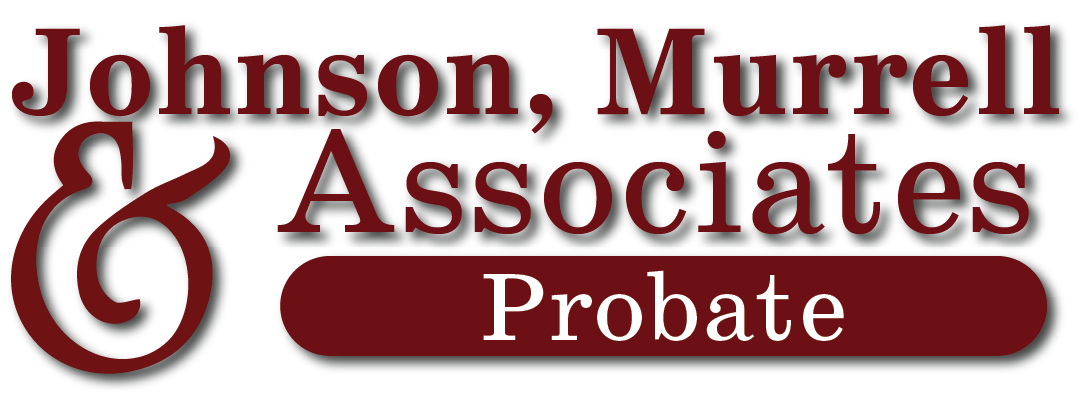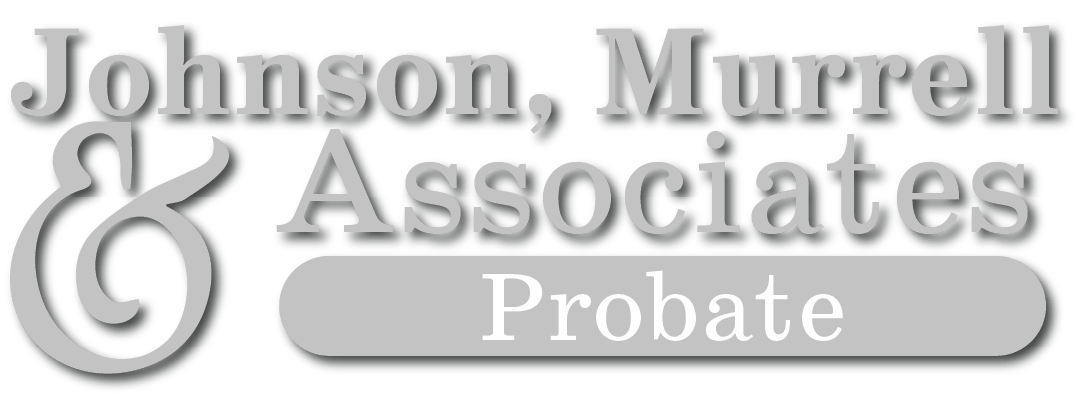Settling an estate can be emotionally taxing, and it becomes even more complicated when you have property in different states. At Johson, Murrell & Associates, we understand that these legal intricacies often accompany difficult times. That’s why we make it our aim to provide a guiding light through the maze of estate settlement.
Ancillary probate becomes necessary when a person lived in one state but owned property in another. It helps streamline the distribution of assets and aligns with state laws. Johnson, Murrell & Associates provides legal expertise to ensure the compliance and efficient transfer of property in Tennessee.
The Purpose of Probate
Probate is a legal process that occurs after someone passes away. It involves the validation of their will (if one exists) and the distribution of their assets to heirs or beneficiaries. The purpose of probate is to ensure that the deceased’s assets are managed and distributed following their wishes. In the absence of a will, it’s settled according to state law.
This process also settles any outstanding debts or claims against the estate. It provides a transparent, organized framework for resolving disputes and protecting the interests of both the deceased and their heirs. This ultimately facilitates the orderly transfer of property and assets.
What Is Ancillary Probate?
Ancillary probate occurs when someone owns property in a state other than their primary residence when they die. For example, let’s say you live in Ohio but own a vacation home in Gatlinburg, TN. Ancillary probate would facilitate the transfer of ownership of the cabin to your rightful heirs or beneficiaries.
During ancillary probate, the court in the state where the property is located reviews the decedent’s will, if there is one. They oversee the distribution of assets located within that state—Tennessee in the above case. This ensures that the property is transferred following the decedent’s wishes. If there is no will, the property is transferred per Tennessee intestacy laws.
Ancillary probate can be a necessary step to establish a clear legal title to the out-of-state assets or prevent potential conflicts or disputes among heirs or beneficiaries. It may also involve appointing an executor or personal representative specifically for the assets located in the secondary state. They will be responsible for managing and distributing those assets according to the law.
Advantages of Ancillary Probate
Ancillary probate presents distinct advantages, primarily by ensuring the proper distribution of assets located in Tennessee. It streamlines the probate process by distributing assets in different locations according to the deceased’s intentions. This prevents ambiguity and potential disputes among beneficiaries, ensuring a methodical and equitable allocation of resources.
Ancillary probate also addresses local legal requirements specific to Tennessee. Probate laws can vary significantly between states or countries. Ancillary probate acts as a legal mechanism to harmonize the settlement process with the unique regulations of each locality.
This meticulous adherence to local laws helps:
- Avoid complications
- Reduce the risk of legal challenges
- Expedite the overall probate proceedings
Ancillary probate provides a comprehensive and legally sound framework for the distribution of the deceased’s estate. It ensures that the settlement aligns with the legal landscapes governing each distinct location of the deceased’s property holdings.
Ultimately, the advantages of ancillary probate lie in its ability to harmonize distribution and legal compliance across states. This enhances the overall efficiency and fairness of the probate process.
Disadvantages of Ancillary Probate
Ancillary probate does have some disadvantages. Unlike a primary probate that settles an entire estate, ancillary probate deals only with out-of-state assets, requiring additional legal proceedings. This extended timeline can frustrate heirs, delaying the distribution of assets.
That said, ancillary probate is cheaper and easier than opening a full probate case in both Tennessee and the home state of the deceased. Managing legal requirements in different states demands hiring local attorneys, resulting in duplicated legal expenses. Additionally, filing fees and court costs can accumulate.
The financial burden of these extra proceedings can diminish the overall value of the estate, leaving beneficiaries with reduced inheritances.
How To Navigate Ancillary Probate
Navigating ancillary probate involves hiring an attorney with expertise in probate law. This is crucial for a smooth process. The attorneys at Johnson, Murrell & Associates can guide you through the complex legal requirements, ensuring compliance with Tennessee-specific regulations.
The ancillary probate process typically involves several steps. The first is identifying the assets subject to ancillary probate. This can include real estate or tangible personal property located in a different state. Consult with one of our attorneys to determine whether ancillary probate is necessary.
Next, file a petition in the appropriate court in the state where the additional assets are located. This petition may request the appointment of a personal representative or executor to oversee the distribution of assets. The court will then validate the will and provide legal authority for the representative.
After the appointment, the personal representative must:
- Inventory and appraise the ancillary assets
- Settle outstanding debts
- Distribute the remaining assets to the rightful heirs or beneficiaries according to the terms of the will or state intestacy laws
Throughout the process, our Tennessee legal experts play a vital role in:
- Ensuring compliance with local probate rules
- Filing necessary documents
- Addressing any legal challenges that may arise
By partnering with our knowledgeable attorneys in East Tennessee, you can successfully follow the appropriate steps and navigate ancillary probate. This allows for the facilitating of the efficient transfer of assets across states.
Assets covered by ancillary probate
Ancillary probate typically covers assets located outside the deceased person’s home state. These assets primarily include real estate. However, ancillary probate also applies to tangible personal property registered or titled in other states, including vehicles, boats, and airplanes.
In some cases, ancillary probate may be necessary for rights to livestock, oil, gas, or minerals attached to out-of-state real estate. It’s important to note that intangible assets like bank accounts and brokerage accounts are generally not subject to ancillary probate, as they are considered to “live” where the account holder resided.
The need for ancillary probate is often discovered by the executor when performing an accounting of the decedent’s property and assets. This secondary probate process ensures that out-of-state assets are properly distributed according to the decedent’s will or state laws, addressing the complexities of multi-state estate administration.
How Long Does Ancillary Probate Take?
The duration of ancillary probate can vary significantly depending on several factors, but it typically takes between six months to a year. However, some cases may be resolved more quickly, while others can extend beyond a year.
Key factors affecting the duration of ancillary probate include:
- Estate size and complexity: Smaller estates with fewer assets may be processed more quickly, especially if they qualify for abbreviated ancillary probate.
- State-specific laws: Each state has its own probate laws, which can impact the timeline. Some states have mandatory waiting periods or notification requirements that must be followed.
- Disputes or claims: If there are disagreements among beneficiaries or creditor claims against the property, the process can be significantly prolonged.
- Court caseload: The workload of the probate court in the jurisdiction where the property is located can affect processing times.
- Efficiency of the personal representative: The speed and competence with which the executor handles the necessary paperwork and procedures can impact the overall timeline.
It’s worth noting that ancillary probate is often faster and less expensive than primary probate, especially for smaller estates. However, when combined with the primary probate process, the overall estate settlement can be lengthened due to the need to manage two separate proceedings simultaneously.
If the decedent’s assets are valued at $50,000 or less and meet certain conditions, an abbreviated ancillary probate process may be available in Tennessee, potentially shortening the timeline. To minimize delays and complications, it’s best to work with an experienced probate attorney familiar with the specific Tennessee probate laws.
Muniment of Title and Ancillary Probate
Muniment of title is a legal process used to transfer the assets of a deceased individual without the need for formal probate. It allows the transfer of property based on presenting the deceased person’s will and death certificate to the court. Muniment refers to a document that serves as evidence of a right, title, or interest in a property.
The will establishes the right of beneficiaries to inherit the property mentioned in the will. This process is typically available when the deceased person’s estate consists primarily of real estate, such as land or a house, and there are no substantial debts or disputes regarding the distribution of assets.
The relationship between muniment of title and ancillary probate is that both deal with transferring property after someone’s death. However, they are distinct in their application.
- Muniment of title is an option for those who have limited assets in a single state.
- Ancillary probate is essential when the deceased owned property in different states, necessitating additional probate proceedings to distribute those assets appropriately.
Whenever I’m asked about the connection between a muniment of title and ancillary probate, I explain that a muniment of title is a condensed version of ancillary probate. This form of ancillary probate has saved people a substantial amount of money.
In my experience, it can save clients thousands of dollars in legal fees. It can also save up to six months in court proceedings in some cases.
Strategies To Avoid Ancillary Probate
Proper estate planning can significantly reduce the need for ancillary probate and simplify asset distribution for heirs. This includes the use of trusts and strategic property ownership.
Several strategies can help avoid ancillary probate for out-of-state properties. One of the most effective methods is establishing a revocable living trust, which allows property ownership to transfer directly to beneficiaries upon death, bypassing probate entirely.
Other strategies include:
- Gifting property during one’s lifetime
- Using Tennessee’s small estate procedures
- Selling the out-of-state property before death
Another approach is creating joint tenancy with right of survivorship, where property automatically passes to the surviving owner. This strategy is particularly effective for spouses or family members. For financial accounts, designating beneficiaries can ensure assets pass directly to named individuals.

Ancillary probate is essential for assets located in different states by helping streamline distribution and aligning with local laws. On the other hand, it may result in delays and increased costs impacting inheritances. At Johnson, Murrell & Associates, we provide you with legal expertise to ensure compliance and the smooth transfer of property.
At Johnson, Murrell, & Associates, we understand that handling a loved one’s estate and bills after their passing is an emotional, stressful experience. Our job is to make your life easier, which means guiding you through the process so you understand what’s to come. To schedule a consultation, call us at 865-453-9943 or schedule an appointment.



